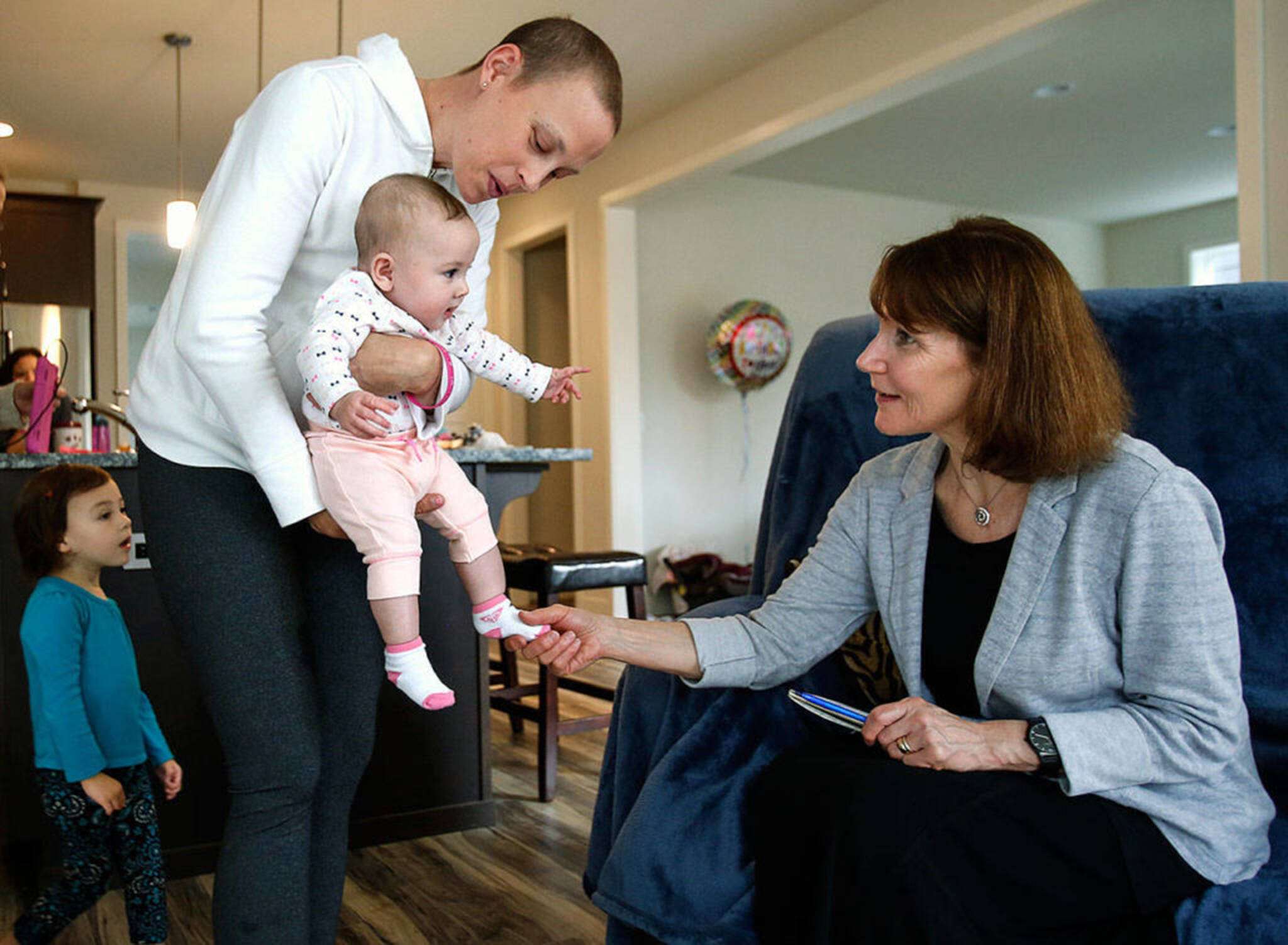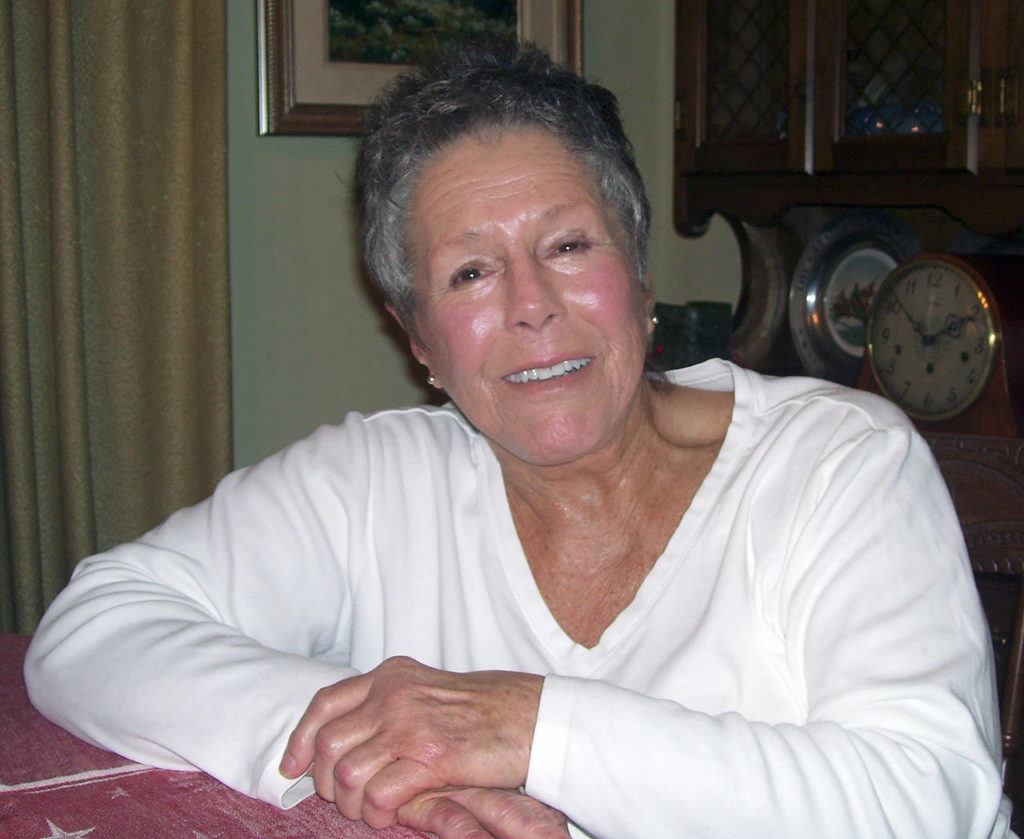Without pad and pen. That’s what the birthday invitation said. Its sender couldn’t have known he was describing the next chapter of my life.
September is always a golden month. This year it’s especially so for me. As of Sept. 1, I am retired.
In April, when I wrote about the 40th anniversary of The Daily Herald’s first Sunday edition, I had a question for our human resources department. I couldn’t remember my exact start date. The reply came back: “Our records show a 3/1/1981 hire date.”
So yes, after 40-plus years on the job, it’s time.
It was Everett’s George Beykovsky who emailed that Aug. 21 party invitation: “Please come to the Mukilteo Lighthouse Park to share my 90th birthday, without pad and pen.”
I definitely had my notebook in 2010 when I first met Beykovsky. His is among thousands of memorable stories I’ve been privileged to tell as a Herald columnist. His family escaped the Holocaust.
In 1939, when he was 8, they fled Europe. His early childhood home was the Czech province of Slovakia, which by ’39 was under Nazi control. With a passport and fear for his family, Beykovsky’s father boarded a ship with his wife and two boys. They settled in Ecuador.
A Boeing retiree who also worked at Western Gear in Everett, Beykovsky served in the U.S. Air Force at Paine Field. Seeing him surrounded by loved ones and nearly 90 guests on his birthday, I couldn’t help but think that had it not been for his parents’ courage, Beykovsky may never have had the blessing of becoming a father, grandfather and great-grandfather.
Without a doubt, the greatest gift of my work has been the people I’ve met — like Beykovsky.
Most days, I think about the strength of Apryl DeBroeck Roberts, who has ferociously battled a rare form of breast cancer. Her story was first featured here on May 15, 2016, just before the birth of her second daughter and not long after her devastating diagnosis. A month after meeting this sweet family, I was back at their home near Martha Lake to see their newborn, Haven, who recently celebrated her fifth birthday.
After the 2018 death of U.S. Sen. John McCain, I visited the widow of Wesley Schierman, an Air Force veteran who’d spent nearly eight years as a prisoner of war in Vietnam. Everett’s Schierman, a retired airline pilot who died in 2014, was captured after his F-105 fighter-bomber was shot down and freed in 1973. Like McCain, he had suffered torture and solitary confinement in North Vietnam.
If you ever get around to reading a book titled “The Cruelest Miles,” about the lifesaving feat that inspired Alaska’s Iditarod dogsled race, perhaps you’ll notice my name in the acknowledgments. Thanks to a 2001 tip from Laney Salisbury, the New York writer who co-authored the 2003 non-fiction book, I had the adventure of discovering the Everett background of Gunnar Kaasen, and of talking with his descendants.
Kaasen was the last sled driver — and musher of the noble Siberian husky Balto — on the 1925 run to bring diphtheria-fighting serum to Nome. The dog’s story was told in the 1995 animated movie “Balto.” Kaasen lived a quiet life here after his brief brush with fame. He died in 1960 and is buried at Cypress Lawn Memorial Park in Everett.
I feel particularly fortunate to have chronicled the lives of five distinguished Everett women. Helen Jackson, Idamae Schack, Jeanne Metzger, Jane Best and Mary Duryee, all now deceased, were true role models whose legacies will benefit our community for generations.
I spent a morning with Mrs. Jackson, widow of the late U.S. Sen. Henry M. Jackson, when she and the Henry M. Jackson Foundation received the 2002 Human Relations Award from the American Jewish Committee’s Seattle chapter. An elegant woman who might have been first lady, she spoke of how glad she was to live in Everett. “It was a joy meeting so many people,” said Jackson, who died in 2018.
The Schack Art Center and the Imagine Children’s Museum wouldn’t be what they are without the generosity of Mrs. Schack, an “angel of the arts” who died in January. In April, we lost Jeanne Metzger, a former Herald editor and dear friend.
For The Herald’s 100th anniversary in 2001, I learned about the newspaper’s earlier days from Jane Best, who died in 2005. The Best family owned the paper from 1905 to 1978. The widow of Robert D. Best, Herald publisher from 1939 until 1976, said the day we met that “people will always rely on local news.”
When Mary Duryee died in 2019, close friend Judy Matheson described her as “one of the last great ladies of Everett.” During World War II, she was one of the first women in Washington to get a real estate license. She kept her family’s real estate business going during the war years.
In 2017, the 20th anniversary of writing this column, I shared memories of other extraordinary people I’ve profiled, and of horrific news events.
I attended vigils and and a memorial service for victims of the 2014 Oso mudslide that claimed 43 lives. Also that anguishing year, I met and had a sorrowful interview with parents of first-graders slain in Newtown, Connecticut. They came to Snohomish County after the 2014 shooting at Marysville Pilchuck High School that claimed five lives.
Since my first column was published on Oct. 26, 1997, I’ve written about 3,500 of them. This wasn’t how I started at The Herald. The copy desk was my first Herald home. I was an intern the summer of 1978, and a full-time copy editor from 1981 to 1992. In those years, we scrambled to update the paper’s multiple editions. I distinctly remember big news days, the shooting of President Ronald Reagan, the Space Shuttle Challenger explosion, and the 1991 Gulf War.
As features editor until the fall of 1997, I learned so much working with Herald arts and entertainment editor Mike Murray. My focus then was on lifestyle stories.
In all, I have worked under the leadership of six Herald publishers: Robert Best Jr., Chris Little, Larry Hanson, Allen Funk, David Dadisman and Josh O’Connor. On Sept. 7, Rudi Alcott will become the paper’s 10th publisher.
My work has been an incredible history lesson.
In 2016, for the 100th anniversary of what’s known as the Everett Massacre, Herald local news editor Eric Stevick and I sought to better understand the 1916 labor strife that killed two deputies and at least five Industrial Workers of World (IWW) members, or Wobblies, on the waterfront.
I’ll never forget our chilling interview with the late David Dilgard, the Everett Public Library’s brilliant historian. Dilgard, who died in 2018, spoke of a 1970s interview with a retired Everett policeman. The old cop told Dilgard he saw the bodies of a half-dozen other Wobblies killed that day — wrapped in canvas and weighted with chains to be secretly dropped in deep water off Mukilteo.
Among my memorable outings was a day in Darrington. It’s a tradition there that when a local person dies, small-town cooks go to work. They host after-funeral meals at the Darrington Community Center, where mourners are welcomed not as strangers but as neighbors. With a logging history, many in Darrington have roots in Sylva, North Carolina, in the Great Smoky Mountains. Tarheel recipes and hospitable customs followed them to the Northwest.
In 2011, I met and wrote about Helen Cupic Stone. She had toiled 51 years at Scott Paper Co., later the Kimberly-Clark Corp., before the 2012 closure of the last mill on Everett’s waterfront. “It’s breaking my heart that the place is closing,” she said the day we talked. She’d been at the mill longer than any worker in the factory’s history.
Today, I enjoy walks on the new pedestrian bridge to the Everett waterfront, part of which is becoming a lively residential space. It’s been said that life’s only constant is change.
A member of my book club, who retired not long ago from Sno-Isle Libraries, sent me retirement advice: “One of the best recommendations I got was not to commit to anything for six months,” she said by email, adding “it took that time to decompress.”
For me, it might take longer.
Readers may know about the life-shattering losses my family has endured. Many sent kind messages in 1998 when my husband, Jim Muhlstein, died of a heart attack. A Herald editor, he was just 45. I was expecting our third child. In 2017, the unimaginable happened when that young man, my younger son, was killed in a drug-related crime. He was 18.
I have written often about addiction, recovery, juvenile court programs and related topics — and like so many families who’ve walked that road, ours has known heartbreak. I have also had the great joy of watching my daughter and older son become bright lights who contribute so much to this world.
The next chapter of my life actually began a couple years ago. On Oct. 5, 2019, longtime Herald photographer Dan Bates and I were married.
One memory makes us both laugh. Some time ago, Dan and I were out for a walk in our north Everett neighborhood. I waved to a neighbor who was sitting on a porch. He looked like maybe he didn’t recognize me. So I said, “It’s Julie Muhlstein, from The Herald, and Dan Bates.” And he replied, “THE Dan Bates?”
Yes, THE Dan Bates, whose incomparable photos graced these pages for more than three decades. Now, we’re both happily retired.
Thinking about Labor Day weekend plans the other day, it dawned on me that every day is a weekend. Oh, the freedom — to take long road trips, read fatter books, spend more time with grandkids and my 98-year-old dad, and maybe tackle long-neglected house projects.
Thank you, truly, for reading. I’ll be around — without pad and pen.
Julie Muhlstein: JulieMuhlstein@gmail.com
Talk to us
> Give us your news tips.
> Send us a letter to the editor.
> More Herald contact information.


























